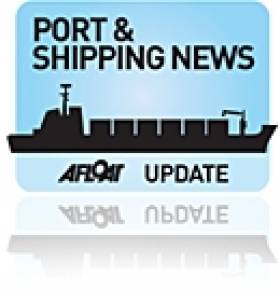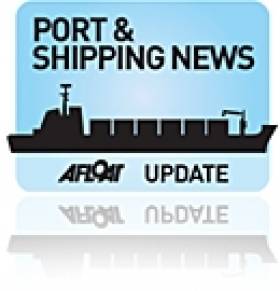Displaying items by tag: Irish Marine Development Office
IMDO Shipping Review: Asia Trade Grows, Scrapping Increases
#Shipping - The latest Weekly Shipping Market Review from the Irish Marine Development Office (IMDO) reports of strong Asia trade in the container market, and a growing sense of optimism among clean product tankers.
Container trade growth is expected to rise to 6.1 per cent in 2013 driven in part by strong business in Asia, which will see some modest growth at a slower pace than elsewhere throughout the year.
Demand in the tanker market is highest among smaller vessels and those handling clean products, while the crude oil market faces "another challenging year". Profits for product tankers in the Atlantic basin are up, and the fleet is looking forward to a year of growth.
The flipside of this is that more and more ships are facing a future in the scrapyard as the dry bulk market continues to stagnate and shipowners race to cut their costs.
The complete Shipping Markets Review for week 7 is available as a PDF to read or download HERE.
IMDO Shipping Review: Tanker Activity Dips, Cleaner Shipping in Europe
#Shipping - The latest Weekly Shipping Market Review from the Irish Marine Development Office (IMDO) reports of a strong rise in earnings in the tanker market despite a reduction in activity for December 2012.
Demand for VLCC and Aframax tankers in the Arabian Gulf experiences the steepest decline, of 37% and 45% respectively - though the market as a whole was still able to finish above the two-year average.
The dry-bulk market is also expected to exceed fleet growth in the latter half of this year, with day rate for Panamax class vessels set to increase by 12.5%.
Closer to home, plans are in the works to extend a Finnish scheme to support investment in cleaner shipping in the European Union.
Amendments to the scheme are aimed at stricter rules that will apply to marine fuel when the Sulphur Emission Control Area - comprising the English Channel, North Sea and Baltic Sea - comes into force in 2015.
The complete Shipping Markets Review for week 4 is available as a PDF to read or download HERE.































































